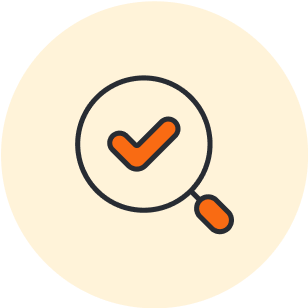Sometimes when we see people with successful careers, we think their career was a result of luck or connections. While that may be true in some cases, often, successful careers are the result of planning. Talk to many executives, and they’ll detail how their career growth took place over a long path that included education, mentorship, challenges, and having an end goal in mind.
While you may have an idea of where you’d like to be, it’s difficult to take action on a general idea. By solidifying what you want exactly, you can take steps in the right direction, and those clear steps can help you feel empowered and motivated.
What is a career plan?
A career plan is a structured and strategic roadmap that you can use to set and achieve your career goals. This plan outlines the steps, actions, and milestones needed to progress in your career over time. A well-thought-out career plan can help you make informed decisions about your professional development and enable you to work toward your desired career outcomes.
A typical career plan usually includes:
- Goal setting: Clearly define short-term and long-term career goals. These goals may include specific job roles, levels of responsibility, income targets, or personal development objectives.
- Self-assessment: Assess your skills, strengths, weaknesses, interests, values, and personality traits. Understanding yourself is essential for aligning your career choices with your personal preferences and capabilities.
- Research and exploration: Investigate different industries, job sectors, companies, and roles that align with your goals and interests. Gather information about the qualifications, experience, and skills required in your chosen field.
- Skill development: Identify the skills and knowledge you need to acquire or improve to advance in your career. Plan how you will acquire these skills through education, training, or on-the-job experience.
- Networking: Develop a professional network by connecting with colleagues, mentors, and industry professionals. Networking can provide valuable insights, opportunities, and support throughout your career.
- Résumé and personal branding: Create or update your résumé and online profiles to reflect your skills, achievements, and career objectives. Consistency in your personal brand can help you stand out to potential employers.
- Job search and application: If you are actively job hunting, your career plan should include strategies for finding and applying for positions that align with your goals. This might involve using job boards, attending job fairs, or leveraging your network.
- Performance evaluation: Periodically assess your progress toward your career goals. Are you meeting your milestones? Do you need to adjust your plan based on changing circumstances or priorities?
- Adaptability: Be prepared to adapt your career plan as circumstances change, new opportunities arise, or your interests evolve. Flexibility is crucial in navigating a dynamic job market.
- Long-term vision: Consider your ultimate career aspirations. Do you want to be a leader or make a difference in an industry? Maybe you want to start a business. Your long-term vision can guide your decisions and actions over the years.
Let’s be clear: a career plan is far more than just a piece of paper. It can sometimes be the difference between stagnating in a current role (and missing out on promotions, fulfillment, and earlier retirement) or achieving a fulfilling, higher-paying job.
Career plan examples
With Lucid, you never need to start from scratch. We have a variety of career growth templates to get you started.
Career growth plan
While this career growth plan template was built with managers in mind to help them guide their employees’ careers, it can easily be adapted to your own uses. Carefully consider what makes you tick, from your values to what roles you’d like to do, and you’ll have a career growth plan in front of you that can help guide your next steps.
Insert career growth plan template with caption: Career growth plan example (click to use template).
Career path
You may not want to become a project manager, but this career path template is an excellent example of a career path. What’s unique about this template is that it can help guide your research as you determine the steps from your current job to where you’d like to be. The research alone is helpful, but knowing what next steps lie ahead can also be motivating and inspiring.
Insert career path template with caption: Career path example (click to use template).
Career progression chart
This granular career progression chart template shows the interconnectedness of many job roles, which is helpful for a career progression that can go in multiple directions. It also includes example salary ranges of job grades.
Insert career progression chart with the caption: Career progression chart example (click to use template).
How to make a career plan
Here's a step-by-step guide on how to create a comprehensive career plan:
-
Self-assessment
- Begin by assessing yourself. Reflect on your interests, values, strengths, weaknesses, and long-term aspirations.
- Identify your short-term and long-term career goals. What specific achievements or positions do you want to reach?
-
Research and exploration
- Research different career fields, industries, and job roles. Explore job market trends and potential career paths.
- Consider the qualifications, skills, and experience required for your desired roles.
-
Set SMART goals
- Make your goals specific, measurable, achievable, relevant, and time-bound (SMART). For example, instead of a vague goal like "get a better job," aim for something like "secure a project management role with a 20% salary increase within two years."
-
Identify skills and knowledge gaps
- Determine the skills and knowledge you need to achieve your goals. Be honest about your current skillset and identify any gaps.
- Create a list of the skills you need to develop or improve to reach your objectives.
-
Plan skill development
- Develop a plan to acquire the necessary skills and knowledge. This may involve taking courses, attending workshops, seeking mentorship, or gaining on-the-job experience.
- Set milestones and deadlines for skill development.
-
Build a professional network
- Start or expand your professional network.
- Attend networking events, conferences, and workshops relevant to your field.
-
Update your résumé and online profiles
- Keep your résumé and LinkedIn profile up-to-date. Highlight your skills, achievements, and career objectives.
- Ensure consistency in your personal brand across all professional platforms.
-
Job search and application strategy
- If you're actively job hunting, create a strategy for finding and applying for positions that align with your goals.
- Tailor your application materials (résumé, cover letter) for each job application.
-
Performance evaluation
- Regularly assess your progress toward your career goals. Are you meeting your milestones?
- Adjust your plan as needed based on your performance and changing circumstances.
-
Adaptability and flexibility
- Be open to adjusting your career plan as opportunities and challenges arise.
- Adapt to changes in your interests, the job market, or personal circumstances.
-
Long-term vision
- Consider your ultimate career aspirations. Where do you see yourself in 10, 20, or 30 years?
- Your long-term vision can guide your choices and priorities over time.
-
Seek feedback and guidance
- Don't hesitate to seek feedback from mentors, career counselors, or trusted colleagues. They can offer valuable insights and advice.
-
Document your plan
- Write down your career plan in a document or digital format. This document should serve as a roadmap for your career journey.
-
Regularly review and revise
- Periodically review and revise your career plan, especially as you achieve goals, encounter new opportunities, or face unexpected challenges.
Remember that a career plan is a dynamic document, so it should evolve as your career evolves. Regularly revisit and adjust your plan to stay on track and align with your changing aspirations and circumstances.
Start planning your career with Lucidchart
If you’re convinced a career plan is the way to go to make your career dreams come true, we’re here to help!

Get started with this career growth plan template in Lucidchart.
Use templatesAbout Lucidchart
Lucidchart, a cloud-based intelligent diagramming application, is a core component of Lucid Software's Visual Collaboration Suite. This intuitive, cloud-based solution empowers teams to collaborate in real-time to build flowcharts, mockups, UML diagrams, customer journey maps, and more. Lucidchart propels teams forward to build the future faster. Lucid is proud to serve top businesses around the world, including customers such as Google, GE, and NBC Universal, and 99% of the Fortune 500. Lucid partners with industry leaders, including Google, Atlassian, and Microsoft. Since its founding, Lucid has received numerous awards for its products, business, and workplace culture. For more information, visit lucidchart.com.
Related articles
A Guide to the Human Resources Career Path
If you’re good with people and passionate about fair and equal working conditions, you may have considered a career in human resources. Learn the roles within the HR career path and develop a strategy for climbing up the human resources ladder.
Why you should choose the project manager career path
When you were asked what you wanted to be when you grew up, you probably didn't say "project manager," but with growing demand and potential of this profession, now is the time to consider the project manager career path. Learn more.
The product manager career path
Product management ranks fifth on Glassdoor’s 2019 list of best jobs in America. But what exactly does a product manager do? And are you up to the task? Take a deep dive into the product manager career path.
What does HR actually do? 11 key responsibilities
Everyone knows that HR is an important department in your organization, but few employees know why. Read our in-depth description of what the HR department does (or what they should be doing) to meet the needs of employees.

